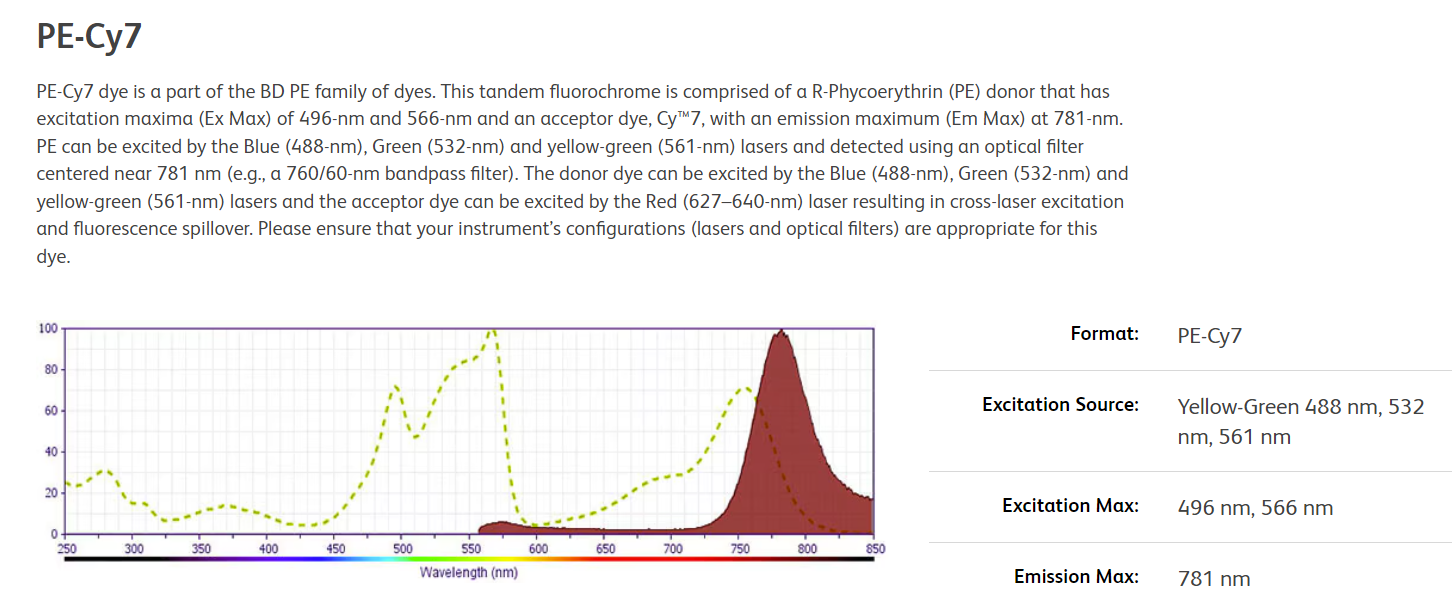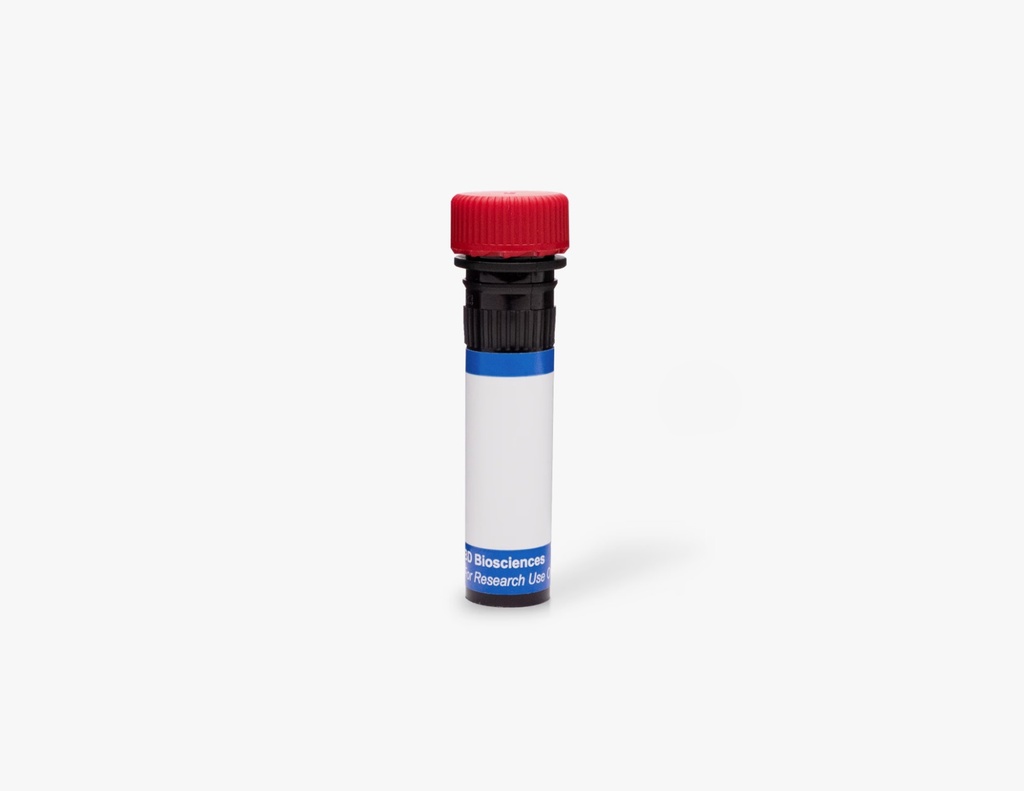BD Pharmingen™ PE-Cy™7 Mouse Anti-Human CD16 for 50 Tests
Catalog No :
CAS Number :
Brand :
In Stock
Specifications:
| Application | Flow Cytometry | ||
| Storage Temperature | 2-8°C | ||
| Product Type | antibody | Forms | Liquid |
| Product Brand | BD Biosciences | ||
| Product Grade | Molecular Biology | ||
The 3G8 monoclonal antibody specifically recognizes CD16a and CD16b, low affinity receptors for the Fc region of IgG. CD16a is ~50-65 kDa type I transmembrane glycoprotein that is encoded by FCGR3A (Fc fragment of IgG receptor IIIa) which belongs to the immunoglobulin superfamily. CD16a is also known as Fc-gamma RIII-alpha (Fc-gamma RIIIa or FcγRIIIA) or FcRIIIa and is expressed on natural killer cells, activated monocytes, macrophages, γδ T cells, immature thymocytes, and mast cells. CD16a binds immune-complexed or aggregated IgG and associates with CD247/TCRζ in NK cells and FcεRIγ chains in phagocytes and mast cells to transduce intracellular signals. CD16a functions in antibody-dependent cellular cytotoxicity (ADCC) and other antibody-dependent responses including phagocytosis, cytokine production or mediator release. CD16b is a ~48 kDa glycophosyl-phosphatidylinositol (GPI)-linked form that is encoded by FCGR3B (Fc fragment of IgG receptor IIIb). CD16b is also known as Fc-gamma RIII-beta (Fc-gamma RIIIb or FcγRIIIB) or FcRIIIb and is expressed on neutrophils and activated eosinophils. The extracellular region of CD16b is highly homologous to CD16a. CD16b also serves as a receptor for the Fc region of IgG and can bind immune-complexed or aggregated IgG and may be involved in neutrophil adhesion.
The 3G8 antibody also crossreacts with a subset of peripheral blood lymphocytes and monocytes, but not granulocytes, of baboon, rhesus, and cynomolgus monkeys. Multicolor analysis reveals that the distribution on lymphocytes is similar to that found in human studies with the majority of CD16-positive lymphocytes being both CD3 and CD20 negative.
This clone also cross-reacts with a subset of peripheral blood lymphocytes and monocytes, but not granulocytes, of baboon and both rhesus and cynomologus macaque monkeys. Multi-color analysis reveals that the distribution on lymphocytes is similar to that found in human studies with the majority of CD16-positive lymphocytes being both CD3 and CD20 negative.





 0
0
